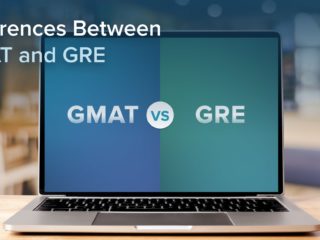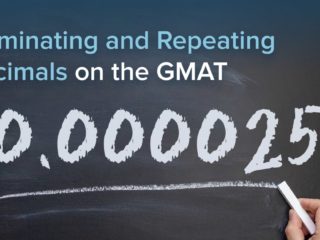Last Updated on May 10, 2023
GMAT OFFICIAL GUIDE DS
Solution:
We are given that the price per share of Stock X increased by 10 percent over the same time period that the price per share of Stock Y decreased by 10 percent. If we let X = the original price of Stock X and Y = the original price of stock Y, we can create the following equations.
1.1X = new price of Stock X
0.9Y = new price of Stock Y
We need to determine the reduced price per share of Stock Y as a percentage of the original price per share of Stock X. This can be translated as:
(0.9Y/X) * 100 = ?
0.9(Y/X) * 100 = ?
We see that if we can determine a value of Y/X, we can answer the question.
Statement One Alone:
The increased price per share of Stock X was equal to the original price per share of Stock Y.
Using the information in statement one we can create the following equation:
1.1X = Y
1.1 = Y/X
Since we have a value for Y/X, we have enough information to answer the question. Statement one alone is sufficient. We can eliminate answer choices B, C, and E.
Statement Two Alone:
The increase in the price per share of Stock X was 10/11 the decrease in the price per share of Stock Y.
The increase in price per share of Stock X is 1.1X – X = 0.1X. The decrease in price per share of Stock Y is Y – 0.9Y = 0.1Y. Therefore, from statement two we have:
0.1X = (10/11)(0.1Y)
Divide both sides by 0.1, obtaining:
X = (10/11)Y
X/Y = 10/11
Reciprocate both sides to get:
Y/X = 11/10 (which is also 1.1)
Since we have a value for Y/X, we have enough information to answer the question. Statement two alone is sufficient.
Answer: D



